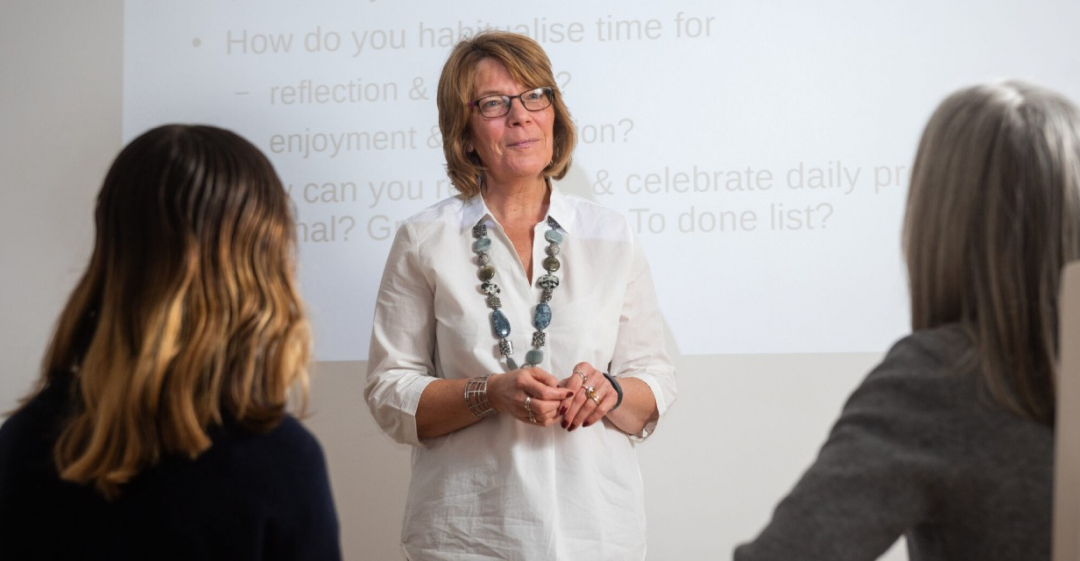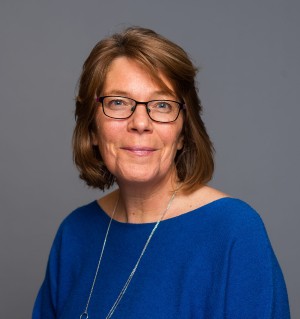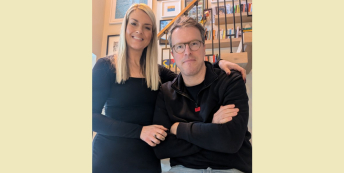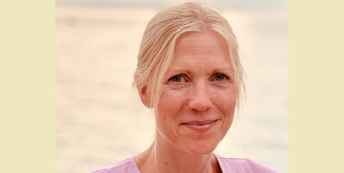“I hadn't really had the time and space to question if this was all that I wanted to be doing.”

What work were you doing previously?
For a long time I specialised in education, initially as a teacher.
Then for four years I was the Director of Education for the Royal Shakespeare Company, a big international theatre company.
I did a mixture of full time employment and freelance work, going back and forth between working for people and working for myself.
Pretty much everything I did was delivering training and doing research in the education and creative sectors. That really was my passion for a very long time.
What are you doing now?
I have a portfolio career.
I train, mentor and coach women around confidence. I get invited in by organisations to design and/or deliver training programmes for them. And I still do bits of education research.
Why did you change?
The pandemic brought about a huge change.
I was one of those people whose work literally stopped overnight. Pretty much all of my work at that point was face to face training.
So I spent the first part of lockdown thinking ‘I'm sitting at home, it's actually nice to have a bit of a break’ but then realising it was going to go on longer than we'd envisaged. As the months went by I started to have a massive rethink about my career.
I wouldn't say I'd got stuck in a rut, it was more that I'd always assumed that my career would totally be in the education and creative sectors. I hadn't really had the time and space to take a step back and question if that was all that I wanted to be doing.
Are you happy with the change?
I absolutely love it.
I’m still really passionate about education, but it’s no longer the thing that creates fireworks in my brain!
What I’m doing now has me firing on all cylinders and even makes me want to work at the weekend, rather than resenting it.
And what I've been delighted by is a growing recognition that the skills that I had as a researcher and trainer working in the education and creative sectors can be applied to other sectors.
How did you go about making the shift?
A long time ago I trained in coaching as I thought it would be a useful skill set to have as part of what I did as a trainer.
But I didn't do that much with it until we hit the pandemic, when I was approached by somebody that I'd worked with when I first trained as a coach.
They asked me if I'd be interested in helping their organisation, which was unfortunately making people redundant. They asked if I'd be willing to be one of the coaches providing support.
As I started supporting more and more women, I became more and more distressed and angry about the disproportionate impact Covid was having on them.
It was also reinforcing lots of things that had come out of my own experience when I was younger, about a lack of confidence, my inner critic, imposter syndrome. All of those things are present in men as well, but all the research suggests are more prevalent in women.
I wanted to continue supporting women in this way, so since then over the past three years I’ve been slowly shifting away from a lot of my education work, into more of a portfolio career.
How did you handle your finances to make your shift possible?
Sometimes due to finances you can't make the ideal shift straight away.
For me it's been a managed process of making sure that I had enough money, which meant for a long time I had to continue working in the education/creative sectors whilst at the same time building up coaching and training elsewhere, which can be quite tricky.
But I'm at the point now where I've mostly let go of the education work so that I can focus most of my time on training and coaching work.
What was the most difficult thing about changing?
Running the two in parallel.
You have a vision for how you want to work, and yet you know you can't get there straight away.
I felt a heaviness for a while and a frustration from not being able to make that leap straight away.
It can be challenging from an emotional point of view when you have this idea of a new identity you want to embody, but you haven't quite been able to let go of the old one.
And then in terms of time and energy, as you're still maintaining that old work whilst trying to build up momentum in the new work at the same time, you’re actually working harder than if you were just working in one area.
What help did you get? 
Being part of online communities, like The Portfolio Collective community, and being part of industry peer groups has been really important in terms of having access to brilliant, supportive people.
What have you learnt in the process?
I think I've learnt it's rare for there to be quick wins.
And so it's as much a process of looking after your self-belief and riding the rollercoaster of emotions, as it is how good you are at actually delivering the work.
It's a bit like building a snowball. At the beginning it's fragile and small and could be smashed any moment. But it slowly starts to build momentum and then you hit a tipping point where it really starts to gather momentum.
But before it hits that tipping point, you need to find ways to keep encouraging yourself to pick yourself up after setbacks, and make sure you celebrate the wins. You have to find a way of nurturing yourself for the long haul.
And unless you're somebody who can work all hours, the process can take longer than you’d like, so there can be frustrations because then change is slow.
What would you advise others to do in the same situation?
Think about how resilient you are and therefore what support you’ll need to have around you to help you get through the bumpy times.
That may include having a coach at certain phases to help you get past slumps or if you get stuck. It's tiring to keep lifting yourself up and keep going. Having somebody who can hold you to account for your actions, to dig beneath the surface of what's holding you back is also incredibly valuable.
So anticipate that there will be bumps in the road and challenges. And think about the strategies you can put in place when you do hit those challenges.
You can connect with Maria on Linkedin.
Thanks to our friends at The Portfolio Collective for this story.
What lessons could you take from Maria's story to use in your own career change? Let us know in the comments below.



